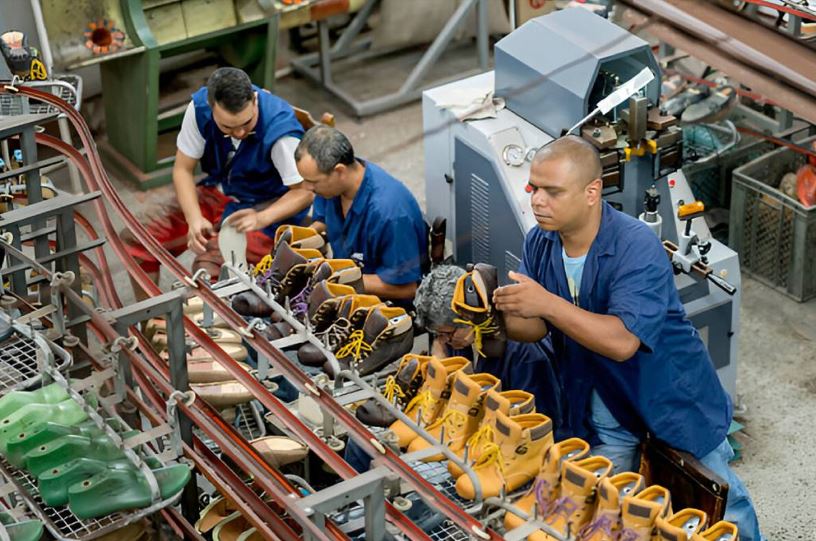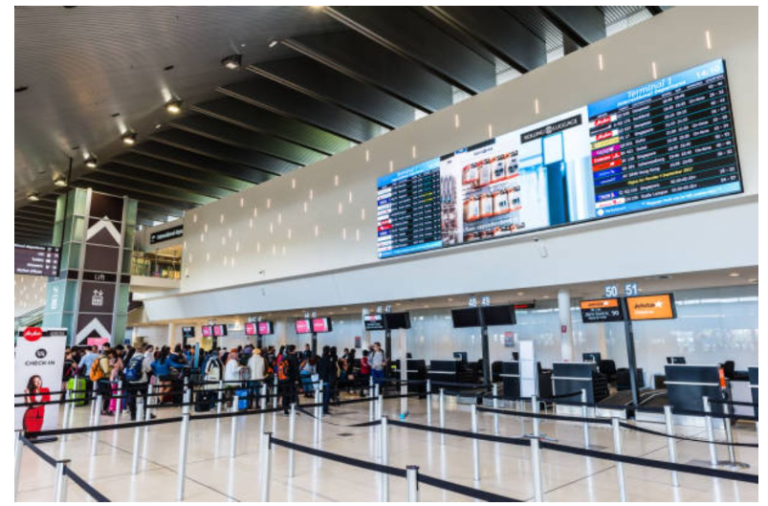Key Features to Consider When Choosing Footwear Machinery
While selecting footwear machinery, you must make the right decision to achieve the proper production rate, keeping the quality intact. The footwear manufacturing process is long and sometimes complex, from cutting the materials to finishing the product. In the process, every step requires specific machines dedicated to the task.
A proper set of footwear machinery can boost productivity, reduce production costs, bring efficiency, and maintain consistent product quality. The question is, how do you choose the right machinery, and what features do you need to consider before buying them? Let’s find out the answer.
What are the Types of Footwear Machinery?
We already know that different steps of footwear production need specific shoe machine. Here is an overview of the basic machines required for a footwear production system.
- Cutting Machines
- Stitching and Sewing Machines
- Lasting Machines
- Sole Attaching and Pressing Machines
- Finishing and Polishing Machines
- Testing and Quality Control Machines
Remember, this is just the basic setup for footwear production. Depending on your needs and production process, you may need some additional machinery, even you may need to make some custom made machines for the job.
What are the Key Features to Evaluate Footwear Machines?
While looking for footwear machines, you need to look for some specific features in the machinery to understand if they meet your requirements. It is an important step because your footwear’s productivity, quality, and efficiency mostly depend on these.
1. Productivity and Speed
Productivity and speed indicate the output rate of the machines, which directly influences the production volume and lead time of your footwear products. The machine you choose must have high operational speed, keeping the quality of your shoes intact. This is one of the most important factors if you have a high demand for products in the market.
2. Precision and Accuracy
The accuracy of the machine is a crucial factor, especially for cutting, stitching, and attaching steps to ensure a consistent quality of the products. Therefore, choose a machine that offers high accuracy in measurements and maintains tight tolerances, especially for the high-end complex lineups of your footwear.
3. Ease of Operations
The easier the machines’ operation process, the less time you need to train your employees and achieve high efficiency. So, your footwear machines should have features like intuitive controls, easy adjustments, and a clear display to make the operation process more user-friendly and flexible.
4. Versatility and Adaptability
You need a machine that can handle multiple tasks or adapt to different materials, and design is a key factor that will maximize your production flexibility. Adaptable machines will also reduce the need for multiple machines for different product lineups.
5. Quality of Components and Build
This is one of the most crucial factors for any machinery you buy; the build quality has to be top-notch. High-quality materials in a machine ensure durability and technical issues where you need to fix or replace it. Therefore, check for high-grade metals and reliable electronics to ensure long-lasting performance for your heavy-duty machines.
6. Safety Features
Ensuring the safety of your machine operators is a must in every industry, and footwear is no different. High-speed or heavy machines should have safety features like emergency stops, protective shields, and sensor-based safety protocols to ensure the safety of your employees.
7. Automation Capabilities
In this era, automation is a great feature that can change the entire production rate of a footwear manufacturer. Automation can streamline processes, improve production consistency, and reduce the cost of manual labor. Look for a shoe-making machine that supports semi-automation or full automation for labor-intensive and repetitive steps.
8. Maintenance and After-Sales Support
Maintenance and after-sales support is the key to extending your machines’ lifespan and reducing your production’s downtime. So, consider machines that have low maintenance requirements and the provider offers reliable aftersale support, especially the availability of spare parts and a good warranty duration.
9. Cost Considerations
You must consider not just the purchasing cost but also long-term operational costs with maintenance expenses and the impact the machine will have in the profit section. The value of the footwear machine has to be profitable, considering the investment.
Conclusion
Choosing the right footwear machinery is the key to producing shoes quickly in a way that won’t harm the environment. Before you buy, consider the important things, like how productive it is, how accurate it is, how easy it is to use, whether it has automation features, and how good the service is after the sale. Also, don’t forget to check the machine’s safety features. This will keep your employees healthy and safe while they operate them





